New to sustainable livestock farming? You are in the right place. Learn how this approach is shaping the future of agriculture in The Gambia- from food security to environmental protection.
In The Gambia, sustainable livestock farming plays a vital role in food security and rural livelihoods. But with growing environmental concerns and limited resources, the shift towards sustainable livestock practices is more urgent than ever. For many families, animals are not just sources of meat, milk, and income, they are also savings, cultural symbols and a buffer against hardship. However, the sector now faces mounting pressure from climate change, shrinking grazing land, water scarcity, and poor animal health management.
WHAT IS SUSTAINABLE LIVESTOCK FARMING?
It is an approach that balances productivity with environmental care using practices that conserve water, reduces emissions, and protect soil quality while ensuring animal health and welfare.
In contrast to today’s conventional methods of livestock farming, sustainable livestock farming integrates environmental, social, and economic factors into animal production systems, thus minimizing negative impacts on ecosystem, conserving natural resources and increasing animal welfare. Sustainable livestock farming often revolves around the following methods that reduce pollution, conserve water, and minimize the use of chemical agriculture inputs.
It also provides essential food products, livelihoods, and increasing opportunities for innovation. However, it increasingly recognized that modern livestock farming practices often involving mass production and intense resources use contribute to climate change and environmental degradation.
THE IMPORTANCE OF SUSTAINABLE LIVESTOCK FARMING IN THE GAMBIA
Livestock is a cornerstone of rural life in The Gambia; providing food, income, employment, and cultural value. But traditional farming methods are under increasing pressure due to climate change, land degradation, and population growth. This makes sustainable livestock farming not just important, but essential for the country’s future. With Sustainable Farming Practices, the following can be achieved:
- COMBATING CLIMATE STRESS
The Gambia faces rising temperatures, erratic rainfall, and frequent droughts. These changes affect grazing lands, water availability, and animal health. Sustainable practices like water harvesting, rotational grazing and drought-resistant fodder help farmers adapt and reduce vulnerability.
2. PROTECTING THE ENVIRONMENT
Conventional livestock system often lead to overgrazing, deforestation and soil erosion. Sustainable methods restore soil fertility, maintain vegetation cover, and reduce methane emissions. This protects biodiversity and preserves natural resources for future generations.
3. STRENTHENING FOOD SECURITY
Livestock is a major source of meat, milk and eggs. When farming systems are sustainable, production is more stable and nutritious, food is more consistently available, especially in rural areas where markets are limited.
4. REDUCING POVERTY AND EMPOWERING COMMUNITIES
Sustainable livestock farming improves productivity and reduces costs over time. This means better income for small-holder farmers. It also creates opportunities in areas like veterinary services, feed production, and marketing especially for women and youth.
5. SUPPORTING NATIONAL DEVELOPMENT GOALS
Sustainability in agriculture aligns with The Gambia’s development plans and global goals like SDG’s (Sustainable Development Goals). It promotes inclusive growth, rural development, and environmental resilience, essence for national progress.
In essence, sustainable livestock farming is essential for creating a food system that is both environmentally responsible and economically viable, while also ensuring the well-being of animals and the livelihoods of farmers.
STRATEGIES ON HOW TO DEVELOP LIVESTOCK FARMING
Livestock make a major, although largely underestimated contributing to rural development in developing countries. They produce food, enhance crop production and provide additional economic goods and services as well as cash income. The inclusion of livestock diversifies and increases total farm production and income, provides year-round employment and disperses risk. Sales of livestock products provides funds for purchasing crops inputs and for financing farm investments. Livestock often form the major capital reserve of farming households and in general, it enhance the economic viability and sustainability of a farming system.
Essential Strategies for Advancing Livestock Development
- IMPROVE ANIMAL HEALTH
Animal diseases reduce productivity and income, and can spread rapidly if not addressed. So therefore, regular veterinary care, vaccinations, deworming, and disease monitoring are essential. Healthy animals grow faster, reproduce better, and are more productive. Preventing disease also reduces the use of antibiotics, helping to prevent resistance and protecting public health.
2. ROTATIONAL GRAZING
This involves dividing pasture into sections and moving livestock from one place to another on a schedule. It prevents overgrazing, allows grass to recover and improves soil fertility, it also helps control parasites and supports more efficient use of land.
3. IMPROVED BREEDING PRACTICES
Using selective breeding or crossbreeding enhances productivity and resilience. Breeds can be selected for traits like disease resistance, faster growth, and better feed conversion. This reduces the number of animals needed to produce the same output, lowering environmental impact.
4. EFFICIENT FEED MANAGEMENT
Providing balanced diets using locally available resources (like crops residues, legumes, and fodder trees) reduces costs and improves growth. Conservation techniques like silage and haymaking ensure feed is available during dry seasons, reducing press on land.
5. WATER CONSERVATION AND HARVESTING
Efficient water use: Through rainwater harvesting, proper watering systems, and protection of water points ensures livestock stay hydrated while conserving a scare resource. It also reduces water pollution from runoff.
6. COMMUNITY TRAINING AND INVOLVEMENT
Community engagements are crucial for a long-term success in sustainable livestock farming. It ensures that farmers have the knowledge, skills, and support needed to adopt and maintain best practices. Training programs should be practical, locally relevant, and accessible to all, including women and youth. This can be done through farmer field schools, demonstration farms, workshops, and peer learning sessions. These approaches allow farmers to see and test new methods in real life settings, such as feed preservation, animal healthcare, rotational grazing and manure management.
FACTORS THAT AFFECT SUSTAINABLE LIVESTOCK FARMING IN THE GAMBIA
Several factors significantly impact livestock farming in The Gambia. These include climate variability and change, which affects feed availability and water resources, disease outbreak, particularly among cattle, leading to reduced productivity and livestock deaths, and poor infrastructure which hinders access to market, veterinary services and extension support.
Additionally, limited access to affordable financing for livestock farmers, weaknesses in the existing livestock marketing system and low genetic potential of local breeds contribute to the challenge.
Essential considerations influencing sustainable livestock farming practices in The Gambia
- CLIMATE CHANGE
Rising temperatures, prolonged dry seasons and erratic rainfall patterns disrupt grazing cycles, reduce pasture availability and dry up water sources. These conditions lead to heat stress in animals, lower fertility, poor weight gain and increased mortality. Climate change also contributes to the spread of vector-borne diseases, like ticks and foot-and-mouth disease.
2. LAND DEGRADATION
Overgrazing, bushfires, and deforestation have led to severe land degradation. Continuous grazing without rest prevents vegetation from regeneration, leading to soil erosion, loss of organic matter and reduces soil fertility. This affects not just livestock, but the overall ecosystem and future land productivity.
3. LIMITED VETERINARY SERVICES
Access to animal healthcare is weak, especially in rural areas. Many farmers lack vaccines, dewormers, and professional veterinary guidance. Disease outbreak like PPR (Peste des Petits Ruminants) and Newcastle disease reduce herd numbers and farmer income, while poor disease control can spread infections quickly across communities.
4. LOW FARMER EDUCATION
Many livestock keepers lack formal training in animal husbandry, nutrition and sustainable practices. Without knowledge of techniques like rotational grazing or integrated farming, unsustainable methods continue affecting both productivity and the environment.
5.WATER SCARCITY
Access to water is a major constraint to sustainable livestock farming in The Gambia, especially during the long dry season. Livestock depend on a constant supply of clean water for drinking, cooling, digestion and overall health. When there is limited water, animals become dehydrated, weak and more prone to disease. This reduces productivity in terms of meat, milk and reproductive performance.
In some parts of rural Gambia, water points are few and far apart, forcing herders to walk animals for long distances which increases stress and energy loss. In some cases, overcrowding at shared water sources can lead to conflict between herders and even between livestock and crop farmers. It also affects pasture availability. Without moisture, grass and forage plants fail to grow, leaving animals with little to feed on. This results to overgrazing on the remaining vegetation which further degrades the land and deepens the cycle of scarcity.
These factors are a clear picture. But what can we do about them? Keep reading to explore practical, homegrown solutions that could transform livestock farming in the Gambia.
Strategies for Addressing Challenges in Sustainable Livestock Farming in The Gambia
Addressing the challenges of animal health and welfare begins with good farm management practices. Regular health checks, vaccination programs, and proper nutrition can significantly reduce the risk of disease outbreaks. Animal welfare can also be improved by providing appropriate housing, handling animals gently and minimizing stress. Training farm workers in animal welfare practices is crucial, as it is the monitoring of animal behavior for signs of distress or disease.
Technological solutions can also play a role, for example, precision on livestock farming uses sensors and data analysis to monitor animal health and welfare in real-time, allowing for early detection and treatment of health problems.
CONCLUSION
Sustainable livestock farming in The Gambia is not just a necessity, it is a pathway to food security, rural development and climate resilience. With increasing pressures from climate change, land degradation and limited resources; transforming traditional practices into more sustainable systems is critical.
By adopting climate smart method, improving animal health, managing natural resources wisely, and empowering communities through training and support, The Gambia can build a more resilient livestock sector. The future of farming depends on how well we balance productivity with environmental care, ensuring that today’s actions secure tomorrow’s livelihoods.
Additionally, livestock production remains one of the world’s most important sectors concerning economy, food security, and the livelihoods of people. On the one hand, there is a growing appetite for animal-based products but on the other, the effect of livestock production on climate change and the negative contribution of livestock to climatic change. The livestock sector must become more sustainable while adjusting to climatic changes while at the same time meeting the rising population’s demands for animal-based products.
Bringing You Healthy, Sustainable Livestock
At Sare Yaffa Ranch, we raise healthy, well-cared-for animals while protecting the environment. Looking to buy livestock that meets high standards of quality and sustainability?
View Animals for Sale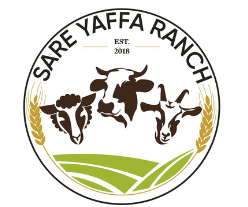
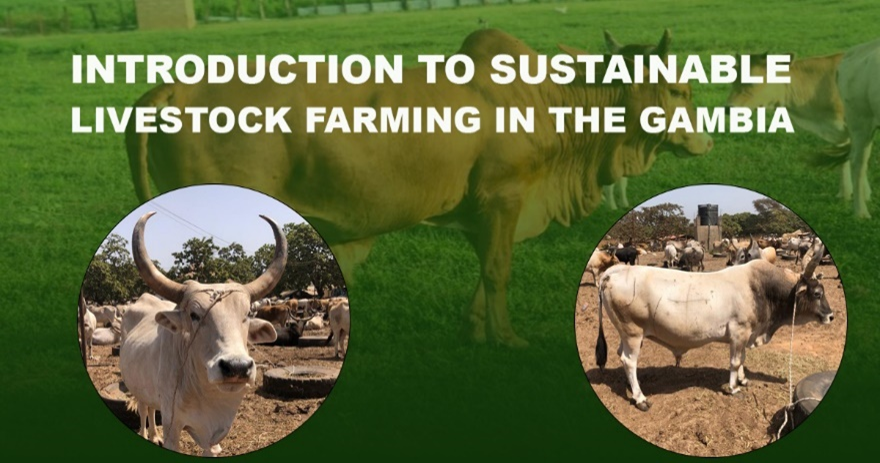
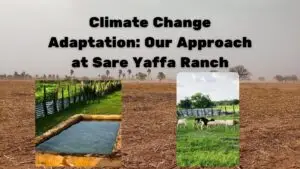
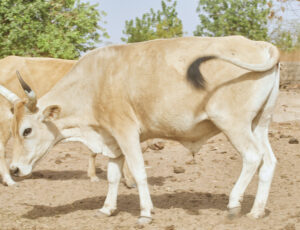
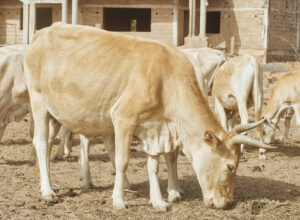
[…] disparities in training or resource control. Despite these, initiatives like Sare Yaffa Ranch’s Sustainable Farming Practices, show how targeted support can bridge gaps through local […]